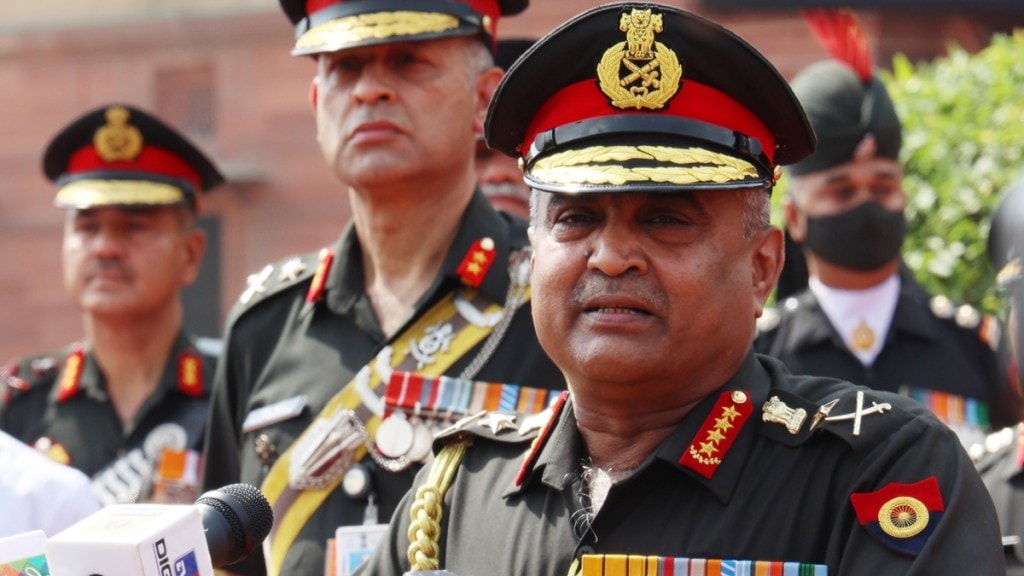Indian Army Chief General Manoj Pande recently undertook a four-day visit to the Republic of Korea (ROK), aiming to enhance bilateral defense cooperation, particularly in defense manufacturing. During the visit, he engaged in crucial discussions with high-ranking South Korean military officials, focusing on fostering mutual understanding and contributing to the security framework of the Indo-Pacific region.
Sources within the defense and security establishment highlighted the significance of the visit, emphasizing that General Pande received detailed briefings on security aspects in the joint security area and demilitarized zone. Additionally, he visited a drone combat unit to gain insights into border management and surveillance facilities, contributing to discussions on regional security situations.
The primary objective of the visit was to seek collaboration from South Korea in defense manufacturing, involving strategic discussions and bilateral meetings with key figures like General Park An-su and General Kim Seung-kyum. These engagements aimed not only to foster mutual understanding but also to contribute to the overall security architecture of the Indo-Pacific, aligning with the broader geopolitical goals of both nations.
The visit which commenced on November 20, holds historical significance in India-ROK relations, as it marks the day 73 years ago when the Indian Army played a vital role in the Korean War, providing medical support and contributing a Brigade Size Force named ‘Custodian Force’ under the United Nations. This historical connection further solidifies the ties between the two nations.
Why is the visit important and the significance of Nov 20?
Regarding the importance of the visit, Neeraj Rajput, Editor in Chief of Final Assault and a Senior War-journalist, emphasized the humanitarian role played by India during the Korean War.
He says: “The benchmark of Indian and South Korea relationship is the stellar role 60 Para Field Ambulance (Headquartered in Agra) played during the Korean War (1950-53) where the Indian paramedics not only treated soldiers of ROK but also of North Korea. 03 Indian paramedics had even laid down their lives healing the wounded Korean soldiers.”
“South Korea pays homage to Indian soldiers by making a special ‘Bharat’ memorial at the sprawling Korean War Memorial in the heart of the capital Seoul. That is exactly the reason COAS Gen Manoj Pande began his visit to Seoul exactly on 20th November because that was the day 70 years ago when 60 Para Field Ambulance had landed in Busan (port city of South Korea) to participate in war not for fighting but healing the wounded soldiers. This humanitarian approach of India has touched Korea since then.”
Sharing further details, Rajput who has done ground reporting from the Korean Peninsula, shares his views in an exclusive interaction with Financial Express Online. “Indians had again played an important role when the war ended with a cease fire and PoWs (Prisoners of War) were exchanged between two Korean countries. The (Non) Repatriation Commission formed under the aegis of the UN was led by none other than India’s top most military commander since Independence, Maj Gen KS Thimayya (who later became the COAS). “
“The repatriation of the PoWs had taken place from the ‘Bridge of No return’ on the DMZ (Demilitarised Zone) between North and South Korea. The bridge was seen in the ‘02 James Bond flick, Die Another Day. Gen Pande also visited the DMZ during his visit to South Korea earlier this week,” he adds.
Has India procured any weapons from South Korea?
Yes.
“India had procured 100 K-9 Vajra guns from South Korea under Make in India project in the year 2018. Again India is procuring 100 additional indigenously developed K9s built by L&T in conjunction with Korean OEM.”
Also, “ROK has shown interest in Indian Navy’s P75 (I) project under which 06 stealth submarines to be built indigenously again under Make in India. So, in a way India and South Korea are strengthening defence relations too. That could be the reason Gen Manoj Pande visited a Drone Combat unit during his Korea visit.”
Why did the Army Chief visit the Drone Combat Unit?
Explaining further, Rajput says, “See, during the Ukraine war, Russia had to procure Iranian Shahed drones in the middle of the war after Russian armed forces received serious setbacks in the unconventional domain during the early weeks of the aggression. So, maybe India may not be buying Korean drones soon but want to keep them handy in case any major conflict with the neighbouring countries ensues keeping in view the tumultuous past on both western as well as northern borders.”
